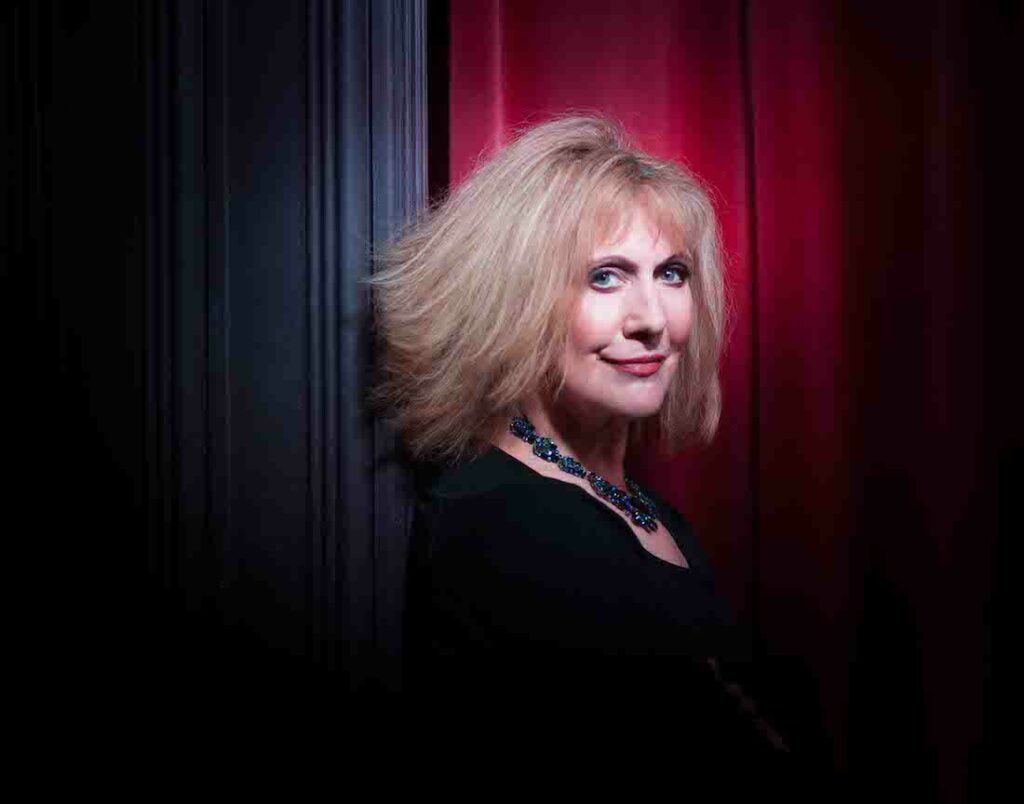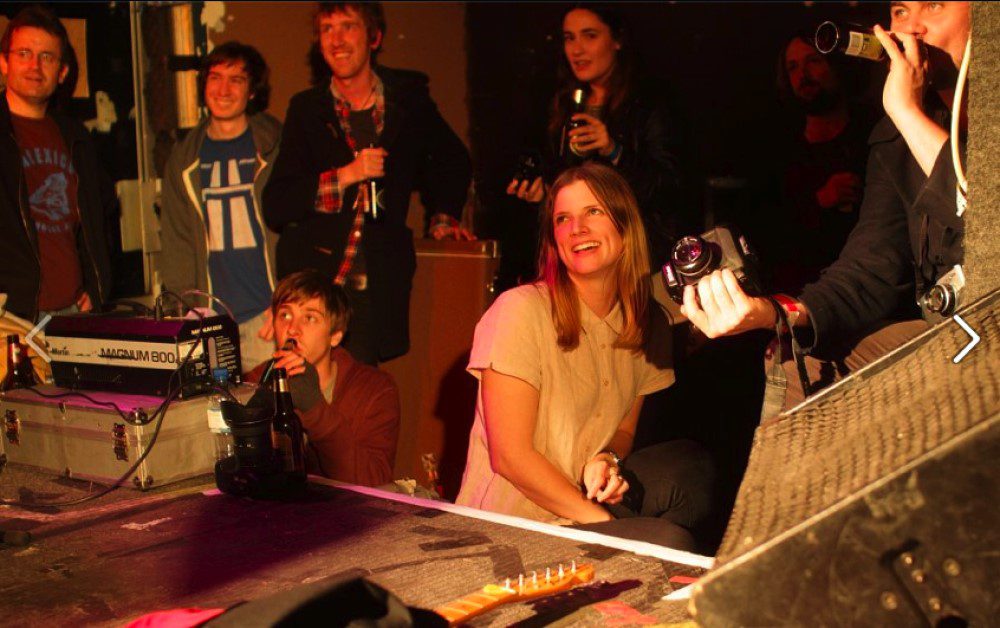Australian Soul Royalty Renée Geyer Kickstarts Post-Pandemic Tour


Renée Geyer is a soul superstar in Australia. She is vaunted by various scenes, from jazz to soul to rock and blues. She is regal and rockstar at once, with high cheekbones and a cheeky smile. At 67, she knows her voice, her body, herself. And it’s been a ride thus far, with addictions and illness obstructing an easy path, which was never promised to women who want to work in the arts for a living in Australia anyway.
Perhaps that explains why Geyer is on the defence, known for her aggressive attitude toward journalists and anyone who she perceives to be wasting her time. I am warned by an industry insider that if she doesn’t like the direction of an interview, she’ll simply hang up. I rise to the challenge and make it three minutes in before Geyer accuses me of asking “a stupid question” and promptly disconnects our call. I allow the fumes to clear and try again. Why am I persisting? Because Geyer deserves to be known for her wicked talent, even if it means a verbal laceration.
“I’m known for doing things my way,” says Geyer, the next day. “I’ve gotten in trouble many times because I’ve stuck to my guns.”
In 1974, Geyer struck success with her second studio album, It’s A Man’s Man’s World (RCA) and rocketed onto the international stage as a backup singer for Sting, Chaka Khan, Joe Cocker and Toni Childs amongst others. She contributed vocals to albums by Neil Diamond, Sting and Australian rockers Men At Work, which kept her afloat in the decade she lived in the US from the mid-80s to mid-90s. As “a white Hungarian Jew from Australia sounding like a 65-year-old Black man from Alabama” (per her autobiography), she wasn’t easily marketable in the States and didn’t ever strike commercial success as a solo singer.
Australia proved more fertile ground for Geyer. Her 2003 album of soul, funk and R&B covers, Tenderland, reached number 11 on the ARIA (Australian Recording Industry Association) album charts. It was her eleventh album, and her throaty, smoky-voiced magic resculpted Prince’s “Thieves in the Temple,” Marvin Gaye’s “Sexual Healing,” Leon Russell’s “A Song for You,” and Curtis Mayfield’s “The Makings of You.” Two years later, she was inducted into the ARIA Hall of Fame.
She’d released her autobiography only years before. Confessions of a Difficult Woman was published in 2000, revealing her struggles with drug addiction and her rocky career trajectory. “I didn’t reveal everything,” laughs Geyer when I ask her about her autobiography being so candid. “Of course, there was some things I was not going to say, but I’m happy with the balance.”
As a child, Geyer had to confront the traumas of her family, not the least of which was being named after a Holocaust survivor who had assisted Geyer’s mother in Auschwitz. The family had moved from Hungary to Sydney, Australia to run a migrant hostel when Geyer was very young. Geyer attended various schools and was expelled from a prominent private school for petty stealing.
At 16, Geyer joined jazz-blues band Dry Red, which set her on the path to her now five-decade strong career. She went on to play with jazz-rock outfit Sun and R&B-influenced band Mother Earth before signing with RCA Records in 1973 as a solo act. Her debut self-titled album came out in 1973, comprising cover versions of songs by Bob Dylan (“Just Like a Woman”), Bill Withers (“Lean on Me”), Buddy Miles (“Them Changes”) and Van Morrison (“Moondance”). It was swiftly followed by It’s a Man’s Man’s World in 1974, but Geyer had tired of RCA’s demands that she not record her original material and hungered for her contract to end.
It was at this point that Geyer made the acquaintance of Michael Gudinski, who passed away in Melbourne earlier this month after a lifetime leading Mushroom Records and championing some of Australia’s best known music acts. Geyer struck a deal with Gudinski that meant she could record with Mushroom Records and her albums and singles would be released with a Mushroom logo stamped on the label. The first release under the new contract was Ready to Deal in 1975. “We’ve always been good friends, for forty years,” says Geyer.
Geyer was prolific from that point on, recording both studio and live albums, releasing her autobiography and performing live. Things came to a head in 2011, when Geyer crashed into parked cars, a tree and finally a shop front and was charged with careless driving. Her public response was to blame her driving on the drug she was taking to treat breast cancer. The intrusion into her private life was jarring. But if anyone is accustomed to public interest into her private life, and stripping away all illusions, it is Geyer. Confessions of a Difficult Woman revealed three near-fatal drug overdoses, six abortions and a battle with depression.
Understandably, Geyer is defensive about her private life and feels vulnerable when journalists pry into it. So, ultimately, the music must speak for her. The morning of our interview, I heard her version of “Soul Groove ’66” on Melbourne radio station 3RRR. The radio host was playing a tribute to long-time PBS FM host Pierre Baroni, who lost a battle with cancer on March 9 of this year. Geyer’s masterful rendition was recorded at Baroni’s request, in his studio. “At the time it wasn’t that significant, it was just a project he wanted me to do,” Geyer says. “It’s only with time that it’s become significant.”
Geyer’s most significant song, “It’s A Man’s, Man’s World” is inevitably always on the setlist, and will be when she plays upcoming Melbourne gigs, kicking off with MEMO Music Hall in St Kilda on March 20. While she’s had to postpone her tour, she’ll be in New Zealand in November this year. “I have a big Maori following in New Zealand, I’m very happy about that,” she says.
Perhaps it’s due to the hardships Geyer has faced, or the ferocity with which she lives on, but there is a unique fire that Geyer brings to everything she sings. Still, she is quick to point out that some of the most startling moments in her catalogue were never really hers to begin with – and that’s fine. “It’s always someone else’s song, whoever wrote the song,” says Geyer. “That I can do my own version is the sign of a great song, the fact you can do it many different ways. It’s always the writer’s song.”
Follow Renée Geyer on Facebook for ongoing updates.


